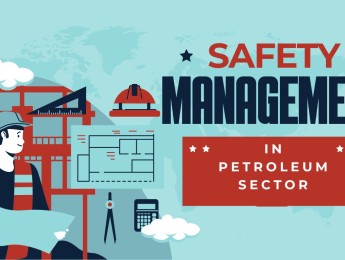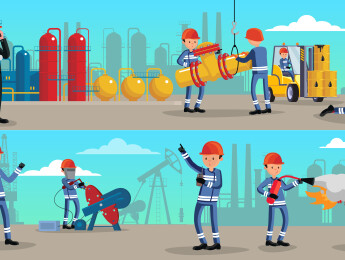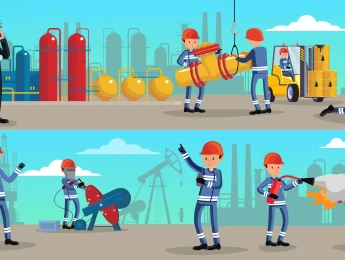Production planning and scheduling are interdependent processes that help you to organise your operations. They determine the key aspects and flow of your manufacturing and refining practices and procedures.
This course will provide an overview of planning and scheduling production for petroleum refinement. A key area of focus will be understanding and developing refinery flowsheets. These flowsheets illustrate all sectors of the refining process and are used to identify and understand changes and impacts of crucial operating variables on your operations.
Upon completion of this course, participants will be able to:
- Understand the planning and scheduling tools available for refinery operations.
- Improve operations and facilities using appropriate scheduling and production plans.
- Use refinery flowsheets to optimise product movement, storage, and exchange.
- Develop risk assessment skills.
This course is intended for:
- Planners and Schedulers working in the oil and gas sector
- Petroleum, Process, and Maintenance Engineers
- Managers and Supervisors in the oil and gas sector
This course uses a variety of adult learning styles to aid full understanding and comprehension. Participants will review case studies to highlight key areas of importance and possible areas for faults. They will be supplied with the best tools required for learning exercises to improve their skills. Participants will analyse the examples to thoroughly understand how these skills, techniques and methods apply in the workplace.
Day 5 of each course is reserved for a Q&A session, which may occur off-site. For 10-day courses, this also applies to day 10
Section 1: Planning And Scheduling In Oil Refineries
- Outline the role of planning and scheduling in refinery operations.
- Identify the type of crude: light and sweet, heavier and sour.
- Describe types of refinery configurations: hydroskimming and complex.
- Discuss crude oil scheduling ranges.
- Examine capacity utilisation rates for different types of crude.
- Discuss process safety management issues in oil and gas operations.
Section 2: Improve Product Movement And Storage
- Outline the required information for moving and storing products.
- Describe the data produced by a crude oil assay.
- Identify the characteristics of intermediates.
- Describe the properties and yields of oil fluid.
- Review the types of process units.
- Discuss the essentials of oil and gas utilities.
Section 3: Optimise Product Blending
- Identify product specifications.
- Discuss emerging trends in the production of fuel.
- Review environmental challenges.
- Describe the impact of crude costs on blending.
- Assess the netback benchmark.
Section 4: Problem Formulation
- Identify attributes and needs using problem formulation.
- Analyse a refinery-wide flowsheet.
- Discuss the applicability of the simplified form of the material balance equation.
- Estimate oil demands and supplies.
- Outline the value of product inventory and quality controls.
- Identify capacity constraints and controls.
- Review the availability of feed.
Section 5: Refinery Flowsheets
- Outline the process of moving and exchanging petroleum products.
- Discuss marginal oil and gas supplies and movements.
- Identify best practices for developing a refinery flowsheet.
- Review the use of linear programming in downstream refinery planning.
- Discuss software solutions for developing refinery flowsheets.
Upon successful completion of this training course, delegates will be awarded a Holistique Training Certificate of Completion. For those who attend and complete the online training course, a Holistique Training e-Certificate will be provided.
Holistique Training Certificates are accredited by the British Assessment Council (BAC) and The CPD Certification Service (CPD), and are certified under ISO 9001, ISO 21001, and ISO 29993 standards.
CPD credits for this course are granted by our Certificates and will be reflected on the Holistique Training Certificate of Completion. In accordance with the standards of The CPD Certification Service, one CPD credit is awarded per hour of course attendance. A maximum of 50 CPD credits can be claimed for any single course we currently offer.
- Course Code IND01-121
- Course Format Classroom, Online,
- Duration 5 days














